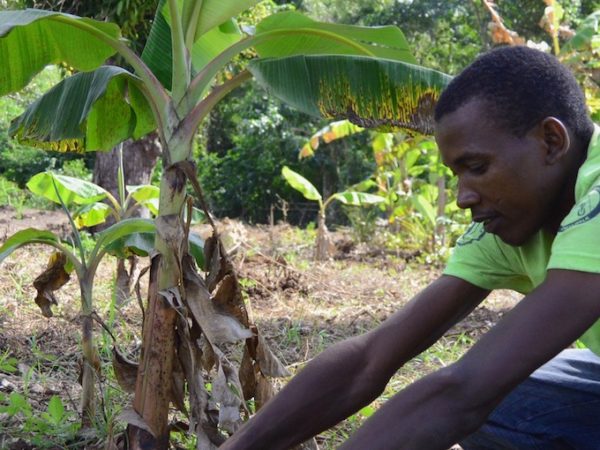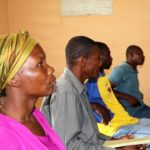United States: U.S. Agency for International Development (USAID)
-
Overview
Accountability Counsel advocates for USAID to create an accountability office to provide communities redress and accountability for harm caused by USAID’s and its implementing partners’ activities.
U.S. Agency for International Development (USAID)
Created In: 1961
Headquarters: Washington, D.C., United States
Mission: To promote global health, support global stability, provide humanitarian assistance, catalyze innovation and partnership, and empower women and girls.
Accountability Office: Not yet established as of July 2020. Read more about USAID’s transparency practices.
The U.S. Agency for International Development (USAID) is the U.S. government’s lead international development agency. USAID works in over 100 countries to promote global health, support global stability, provide humanitarian assistance, catalyze innovation and partnership, and empower women and girls.
USAID does not have an accountability office through which affected communities can seek redress for their complaints. Read more about our advocacy to push USAID to create an accountability framework according to international best practices.
We advocate for accountability offices that are independent, fair, transparent, professional, accessible, and effective tools for justice. Because USAID has yet to establish an accountability office, our number one priority on USAID advocacy is to push for the creation of an accountability mechanism through which communities can register complaints and seek justice.
-
Our Advocacy
The Issue
Unlike the U.S. International Development Finance Corporation and other development organizations around the world, USAID currently lacks an accountability office to address grievances related to its activities. Our support of the Kolektif Peyizan Viktim Tè Chabè (the Kolektif), a collective of Haitian farmers and their families – representing nearly 4,000 people affected by the Caracol Industrial Park (CIP) project, demonstrates the consequences of this accountability gap. These families were forced from their farmland in 2011 to make way for the CIP, a large industrial facility financed by USAID, the Inter-American Development Bank (IDB), and others. In addition to taking 250 hectares of the most
 fertile agricultural land in the area, the CIP’s environmental impacts are also concerning to many of the affected families. These include significant pollution impacts from the 10 MW heavy fuel oil and diesel power plant within the CIP, which was specifically financed by USAID.
fertile agricultural land in the area, the CIP’s environmental impacts are also concerning to many of the affected families. These include significant pollution impacts from the 10 MW heavy fuel oil and diesel power plant within the CIP, which was specifically financed by USAID.After trying to address their issues with the CIP through many various channels, the communities filed a complaint to the IDB’s accountability office in 2017 to address the harm related to the IDB’s involvement in the project. The accountability office, also known as the MICI, was able to facilitate a neutral dialogue process between the Kolektif, the Haitian government, and the IDB, which resulted in a historic agreement in December 2018 that includes provisions to replace farmland and restore livelihoods. The parties are currently working together to ensure that the agreement is fully and robustly implemented. Unfortunately, the communities have not had the same opportunity to address grievances with USAID, as it lacks an accountability office, and many of the environmental challenges posed by the CIP and its associated facilities remain unresolved.
“We have something really strong if all the parties properly put the agreement into practice – if they land it – then the situation will be better for the people.” – Eva Jean Baptiste (pictured), in our When Hope is Power report.
The Opportunity
Fortunately, the U.S. Congress has taken steps to increase the accountability of USAID. In the explanatory statement attached to the U.S. budget legislation for the 2021 fiscal year, Congress directed USAID to create an accountability mechanism to hear concerns about environmental, social, and economic impacts of USAID’s activities. This directive is a critical step towards accountability, one that follows a call from Congress in the explanatory statement for the 2020 fiscal year budget legislation that required USAID to ensure that “effective grievance and redress mechanisms for victims of human rights violations and other misconduct exist” for its national parks and protected areas work.
In 2022, Congress further called on USAID to ensure that its accountability framework is strong and directed it to report on the status of its new accountability office and ensure that the mechanism is operating according to international best practices, including by being adequately staffed and resourced. This call from Congress was repeated in the explanatory statement to the FY 23 appropriations law.
Accountability Counsel is working to ensure that USAID implements these congressional directives so that community grievances are effectively remedied and USAID receives and incorporates lessons learned for the strengthening of future projects. In April 2022, USAID publicly committed to establish an Independent Accountability Mechanism in line with the UN Guiding Principles on Business and Human Rights. USAID should operationalize its commitment to establish an accountability mechanism by consulting the public on its design.
These developments build on years of advocacy for USAID to create an effective accountability framework, including through a joint submission to then-Secretary of State John Kerry during the development of the U.S. government’s National Action Plan on Responsible Business Conduct.
In addition to advocating for the creation of a USAID accountability office, we are also pushing USAID to ensure that it has strong safeguard policies. In August 2020, we submitted comments on USAID’s draft Gender Policy. USAID provided very little time for public comment on the policy, and our submission called on the agency to extend the consultation period to ensure that stakeholders could provide feedback on this important policy. We also urged USAID to ensure that the policy truly promotes equality and nondiscrimination and to create an accountability office to address any negative gender impacts from USAID projects.
-
Resources
U.S. Agency for International Development (USAID)
Created In: 1961
Headquarters: Washington, D.C., United States
Mission: To promote global health, support global stability, provide humanitarian assistance, catalyze innovation and partnership, and empower women and girls.
Accountability Office: Not yet established. Read more about USAID’s transparency practices.
Mechanism and Institutional Resources
As of May 2022, USAID does not yet have an accountability office through which affected communities can seek redress for their complaints. Read more about our advocacy to push USAID to create an accountability framework according to international best practices.
The Automated Directives System (ADS) contains the policies and procedures that guide USAID’s programs and operations. Relevant ADS chapters include Environmental Procedures (chapter 204) and Integrating Gender Equality and Female Empowerment in USAID’s Program Cycle (chapter 205).
As a federal agency, USAID must follow the Freedom of Information Act (FOIA). FOIA, found in Section 552 of Title 5 of the United States Code, was enacted by Congress to provide the public with access to certain federal records. The act requires federal agencies to produce government records in response to requests from the public, provided that the records are not exempt from disclosure by FOIA. Additional information on USAID’s transparency practices can be found here.
-
Documents
Congressional Documents
Explanatory Statement to the FY 2023 Appropriations Legislation
Explanatory Statement to the FY 2022 Appropriations Legislation
Explanatory Statement to the FY 2021 Appropriations Legislation
Explanatory Statement to the FY 2020 Appropriations Legislation
Key Documents by Release Date
July 2022 – USAID’s commitment to develop an accountability mechanism is discussed in the Government Accountability Office report, Foreign Assistance: State and USAID Are Taking Actions to Advance Equity Abroad and Mitigate Challenges.
June 2022 – Accountability Counsel’s Margaux Day and Stephanie Amoako submitted written testimony to the Senate Appropriations Committee’s subcommittee on State, Foreign Operations, and Related Programs (SFOPs) and the House SFOPs subcommittee with recommendations to strengthen accountability at USAID.
April 2022 – USAID published its Equity Action Plan that includes a commitment to develop and implement an Independent Accountability Mechanism.
June 2021 – Accountability Counsel submitted written testimony to the Senate Appropriations Committee’s SFOPs subcommittee with recommendations to strengthen accountability at USAID.
January 2021 – Recommendations For USAID As It Establishes An Accountability Mechanism
August 2020 – Submission on USAID’s draft Gender Policy
May 2020 – AC’s Vision for USAID’s Accountability Mechanism.
Dec 2016 – Following extensive advocacy by Accountability Counsel, The United States released its first National Action Plan on Responsible Business Conduct, including guidelines for USAID. An assessment of the national action plan, based on the recommendations in our submissions, can be found here.
Aug 2015 – Submission on USAID for the U.S. National Action Plan on Responsible Business Conduct.


